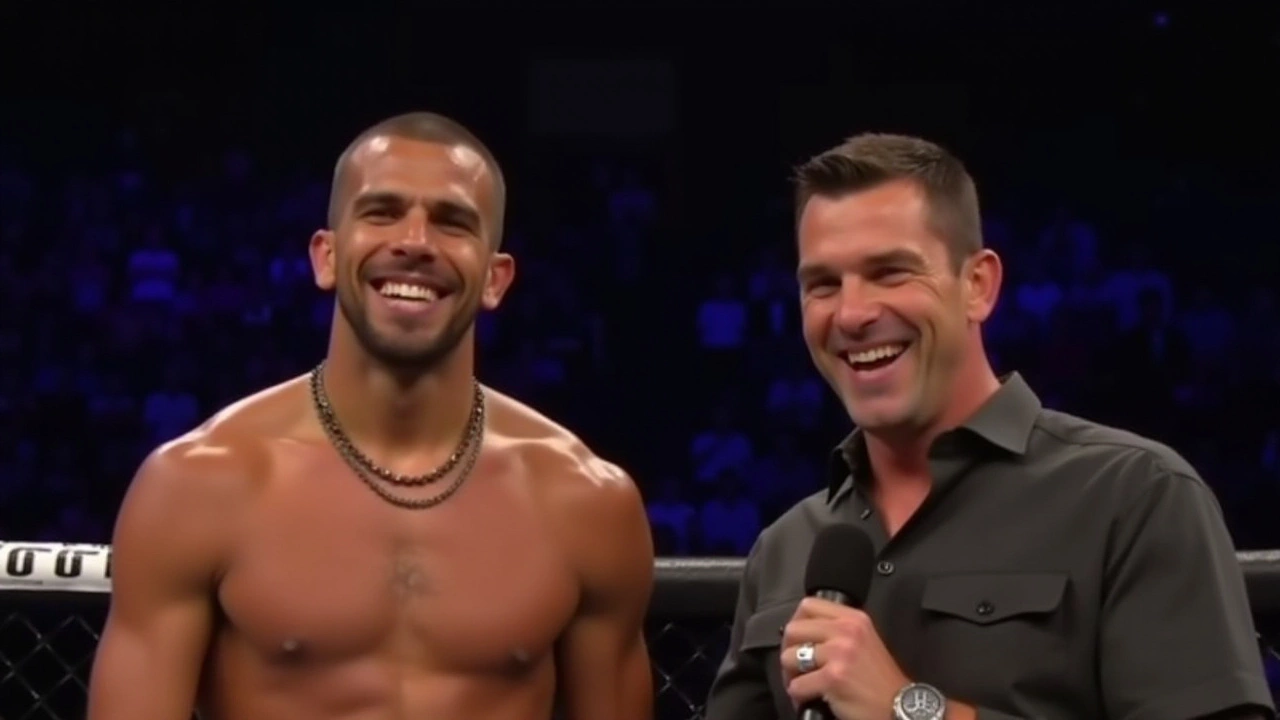Arkansas MMA Fighter Bryce Mitchell Sparks Outrage with Hitler Comments
In a startling turn of events, Arkansas's mixed martial arts (MMA) fighter Bryce Mitchell has found himself at the center of an intense controversy following his recent podcast remarks. Known as 'Thug Nasty' in the UFC ring, Mitchell is not just gaining notoriety for his fighting skills but also for his problematic statements regarding Adolf Hitler. This unexpected detour from sports discussions to offensive historical commentary has ignited widespread backlash. During a podcast episode, Mitchell, presently boasting a UFC record of 8-2 and an overall professional MMA record of 17-2, shockingly defended Hitler, describing him as a 'good guy' once, prior to certain influences that he bizarrely claimed sullied the dictator's reputation. His extrasensory remarks further included, rather disturbingly, that he would have entertained the idea of going fishing with the infamous figure. Such jarring comments have propelled a wave of criticism from both fans and opponents alike.
The Reaction from Fans and Critics
The fallout from Mitchell's comments has been swift and severe, not just from the audience but from a swath of critics who see his remarks as blatant endorsements of antisemitism. Many fans of the UFC, a highly international sport with a diverse following, were taken aback and deeply hurt by his offensive rhetoric. Critics argue that his statements, by trying to explain any part of Hitler's actions without unequivocal condemnation, provide a troubling normalization for hate speech, which is both dangerous and irresponsible. Social media platforms erupted with anger, seeing numerous calls for the UFC and its President, Dana White, to take decisive action. These calls for discipline span from demands for fines, suspensions, or even complete removal from combat sports, reflecting the high stakes of his unfiltered and insensitive dialogue.
UFC's Dilemma and Dana White's Response
This unfolding scenario has placed UFC President Dana White, a seasoned figure in handling PR crises, under significant scrutiny. Historically, the UFC has maintained a reputation for a certain degree of leniency when fighters engage in controversial acts or statements. However, this situation has ignited a much larger debate on the role and responsibility of companies like the UFC to establish and uphold standards of conduct off the battlefield. White's initial silence or inaction has not gone unnoticed, leading to heightened pressure for measures against Mitchell that go beyond the typical slap on the wrist. This includes potential suspensions or formalized statements of condemnation meant to communicate that promotions find no place for hate speech. The wider public and media await to see how White and the organization will navigate these choppy waters.
Broader Concerns on Hate Speech Normalization
Incidents like these peel back layers on how society currently grapples with historical memory, freedom of speech, and the dangers of rhetoric that echoes eras of hatred. They showcase an underlying concern that figures of public noteworthiness, especially in pop culture arenas such as UFC, sports an inherent trust and audience following that carry potent influence. Experts on social statements suggest that inadequate responses from influential entities can unintentionally contribute to an incremental normalization of hate-driven ideologies, which in turn seeds larger societal divides. An insistence on meaningful accountability, alongside proper contextual understanding and education, lies at the heart of a preventive approach.
The Power and Responsibility of Public Figures
The Bryce Mitchell case highlights the crucial link between public platforms and the spread of ideas—constructive or otherwise. Public figures, especially in sports where the youth forms an avid viewership base, hold distinct responsibilities in fostering environments that mimic respectful discourse and inclusivity. As personalities venturing into discussions beyond their athletic feats, such as podcast hosting, fighters like Mitchell must bear in mind the weight their words carry. The incident has reignited conversations around whether entertainment companies should introduce obligatory educational programs on cultural sensitivity and mitigation strategies against hate speech for all representatives, irrespective of their renown or ranking.
Looking Forward
While Bryce Mitchell's comments continuer to gain attention, the MMA community and sports consumers worldwide remain watchful for evolving responses, from direct disciplinary actions to shifts in internal policies governing fighter behavior. As heightened conversations bloom around the responsibilities attached to public-facing roles, there is a growing momentum that appeals not only for retributive justice but for reparative measures that realign sports as venues championing diversity and respect. An opportunity lies in this collective reflection, where disputes over ideas during sporting events can transcend into broader lessons in empathetic communication and unified stance against regression.
